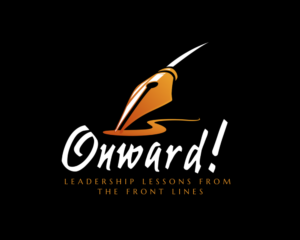A few weeks ago, I met with several of our wholesale customers. It was a phenomenal meeting which allowed for a lot of discussion. One of the topics of conversation was around communication and the disconnect between what information and market intelligence we’re providing them and what they want more of. As they explained, I recalled a sales manager I used to work with. A co-worker of mine referred to him as, “The King of the Five-Minute Phone Call.” Here, we’ll call him The King. As his longer name implied, The King spent a large part of his days making a series of short phone calls to customers.
At first listen, the calls didn’t seem that important. In fact, there seemed to be more bullshitting than selling. His notes were often non-existent, and we often struggled to catch up or paper his deals. But after talking to more and more of our customers who are asking for more communication despite our massive increase in output, I re-examined The King’s conversations in a different light. I also replayed many of the other conversations I’ve listened to while riding with some of our best sales managers and realized their calls follow the same pattern.
We can all learn from The King.
The call cadence was consistent. Each call began with a very short opening chit-chat, catching up on family, the weather, crops, or the latest sports event. The King loved a little gossip, so it was often included. The conversation would then turn towards business. “How’s the crops looking?” or, “Sold anything lately?” Then, The King would naturally guide the conversation to the markets. He was a fertilizer guy, so the markets were always doing something. The King was never short an opinion, so he’d spend the last bit explaining the drivers and telling customers whether to buy, hold, or sell. If they needed to buy, he’d get to a price quickly, always making the customer feel like they got a deal. He’d get a few details regarding delivery and then it was a quick, “OK, see ya,” and onto the next customer.
What makes The King so effective?
1. Proactive. The King initiated most of his calls. While customers came to trust him and often called him for advice, he called his customers, particularly if the markets were moving or if The King had information he thought they might like.
2. Opinion. I talked about this in the July 20th Making the Call article. The King was a subject matter expert willing to “make the call” and regarded by his customers as a trusted source. The customers clearly need this. We are not simply sellers but advisors. The best of us serve as experts who help customers manage their risk. They want our help. I very often hear from our customers, “Just tell us what to do,” “Tell us when to buy,” and “You’re the experts”. They don’t just want to know what is going on in the market, they also want our advice on how to act. The King gave them exactly what they wanted.
3. Short. The calls were short and to the point. Our customers are busy. With The King, they knew the calls wouldn’t last long. They could learn something, get something ordered, and move on quickly.
4. Consistent. The King called his customers every day. As a result, he touched base with his customers constantly, often a few times a week.
5. Unselling. If you listened to The King, you wouldn’t think he ever sold anything. He was never trying to sell something. He traded in information and intelligence, and sales naturally followed. The exception to this, of course, was if the market was moving or there was an opportunity to save money he thought was in the customer’s best interest. The key is sales were a result of the conversations, not the goal.
The result was The King’s five-minute phone calls made him an indispensable source of information for his customers. He wasn’t always right but his customers knew he had their best interest in mind and came to trust him.
So how do companies this at scale? And how do people like The King fit into the digital age?
In my mind, there are three basic types of information. If we work to convey the right information in the right format and at the right time, we are more effective in improving our customer’s experience.
Informational — Basic information such as account balances, order history, and invoices. We need to automate this type of information as much as possible. It should be pushed to customers automatically via email or text and then available to them 24/7 online.
Market Intelligence — More news-like — what’s happening in the markets or across our footprint that might be relevant to our growers. Equally, analysis of those events, what they mean, and how they might impact our customers. The best example is when we put ourselves in the shoes of our customers and provide them with information we would want to know. This requires us to do some analysis and provide insights but a consistent message. Like the delivery of Informational information, sharing is best achieved across multiple platforms available to the customer 24/7.
Decision Points — Lastly, time-sensitive information that requires a decision from the customer. I’ll call them decision points. When the customer is trying to make a of decision – what to buy, when to buy, or when to sell at what price – the information should be conveyed one-on-one. The customer needs our help. One-on-one creates the opportunity to ask questions, have a little debate, and understand nuances often brutally difficult to convey any other way. This brings me back to The King of the Five-Minute Phone Call. The King mastered relaying time-sensitive market intelligence proactively, quickly, in a friendly manner, with a little industry or company gossip mixed in for good measure. He wasn’t driving all day, clogging his customers with long visits or trying to over-sell something. He had frequent, short, to-the-point conversations paving the way before a decision needed to be made. Not every call was this precise, but consistency, frequent contact, and The King’s approach to consultative sales fostered a level of trust his customers deeply valued.
So, what’s the lesson?
Improving our digital game to provide information to our customers in a timely way, across multiple platforms, is key. This simple approach recognizes several key customer needs – valuable information they can consume when and where best suits the customer. And we also will always need Kings, who provide the consistent, personal, back-and-forth to convey the subtleties of the moment and serve as true partners to our customers. To succeed going forward, we need both.
Onward!
Jeff





